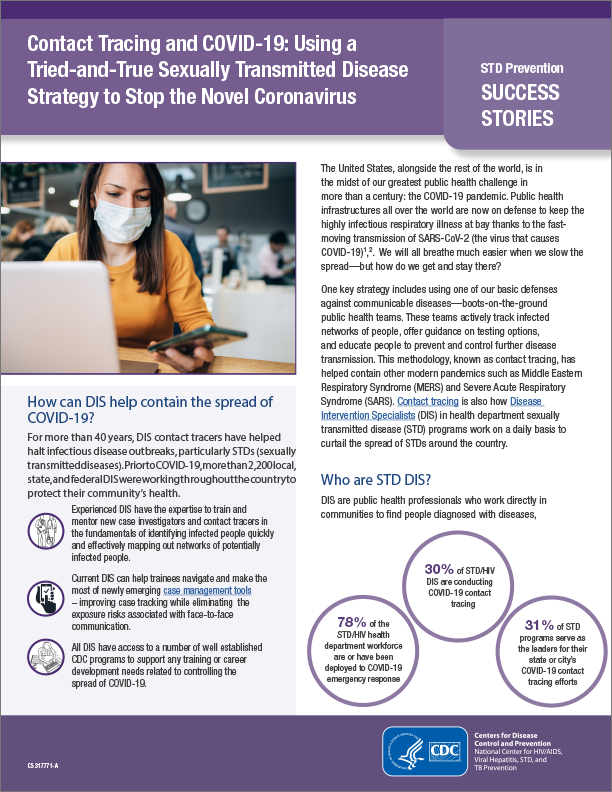Guidance and Resources During Disruption of STD Clinical Services
CDC is committed to offering guidance to STD prevention programs, including STD clinics, on providing effective care and prevention when facility-based services and in-person patient-clinician contact is limited, such as during the current COVID-19 pandemic. This page contains resources that can help ensure patients receive the best possible care during this time.
Dear Colleague Letters
Shortage of STI Diagnostic Test Kits and Laboratory Supplies (September 8, 2020)
- Updated: Diagnostic Kit Shortage (November 24, 2020)
Providing effective care and prevention when facility-based services and in-person patient-clinician contact is limited (April 6, 2020)
- Update: STD Treatment Options (May 13, 2020)
- STD Treatment Options During COVID-19 Webinar
There is currently a national shortage of Trichloracetic Acid (TCA) and Gentamicin. See all drug notices
FDA Communication: In response to concerns related to COVID-19 vaccine interference and false reactive RPR (Rapid Plasma Reagin; non-treponemal) results, BioRad Laboratories, Inc. has disabled the RPR portion of the Syphilis Total and RPR Test Kit until further notice. This means that this test is currently not in use in the United States. Individuals who need syphilis testing should continue to get tested and receive the full testing algorithm as indicated.
Testing for STDs Outside of Healthcare Settings/Clinics
There are currently no FDA-cleared self-tests for chlamydia, gonorrhea or syphilis, the most commonly reported STDs in the U.S. However, there are options for “at-home specimen collection,” which allows a patient to collect their own vaginal, urine or blood sample and take or mail it to a lab for testing. There is an FDA-approved HIV self-test. These options could be useful when in-person services are not available or feasible. Please see the Dear Colleague Letters linked above for other STD prevention and care telehealth services and innovative approaches that may be useful to consider.
Providing Non-Vaccine Injectables
STD clinics may need to find alternate ways to deliver non-vaccine injectables such as ceftriaxone and benzathine penicillin G. Where allowed, clinics may want to consider referring STD patients to pharmacists for the delivery of these injectables.

